Pay-It-Forward Leadership Training Program Transforms Youth into Visionaries
Categorized as: Africa, Education, Grantee, Leadership, Our Partners, Poverty Alleviation, Stories, Youth & Tagged as: Asante Africa, Erna Grasz, Kenya, Legacy, Tanzania on September 27, 2014.
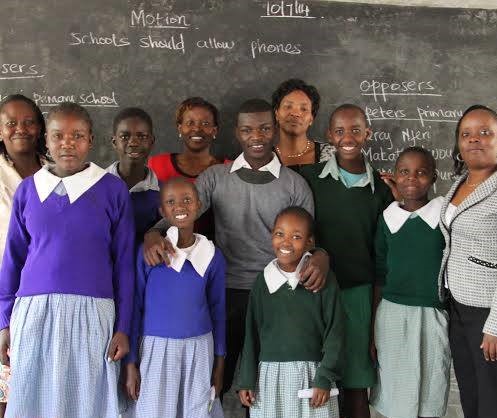
Students in Asante Africa’s Leadership and Entrepreneurship Incubator (LEI) program are turning challenges into opportunities, using a pay-it-forward model to create a meaningful ripple effect in their communities. Guest post by Erna Grasz.
 By Erna Grasz of Asante Africa Foundation
By Erna Grasz of Asante Africa Foundation 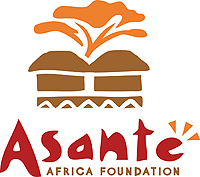
I am frequently asked, “How do you know that what you are doing in East Africa is truly making a difference?” I respond with Mirella’s story.
Mirella is 18 years old, lives in a rural African village, and recently realized her ability to envision and lead transformative community-building efforts. Provided the opportunity to exercise her leadership skills through the Leadership and Entrepreneurship Incubator (LEI) program, Mirella collaborated with her local church to develop a vegetable garden in the church compound. Beyond providing healthy, local food to community members, Mirella envisioned that money made from selling the harvest could be used to sustain the necessary supplies to maintain the garden. The end result: a sustainable source for healthy food in the community and the beginning of a young, African female’s entrepreneurial career.
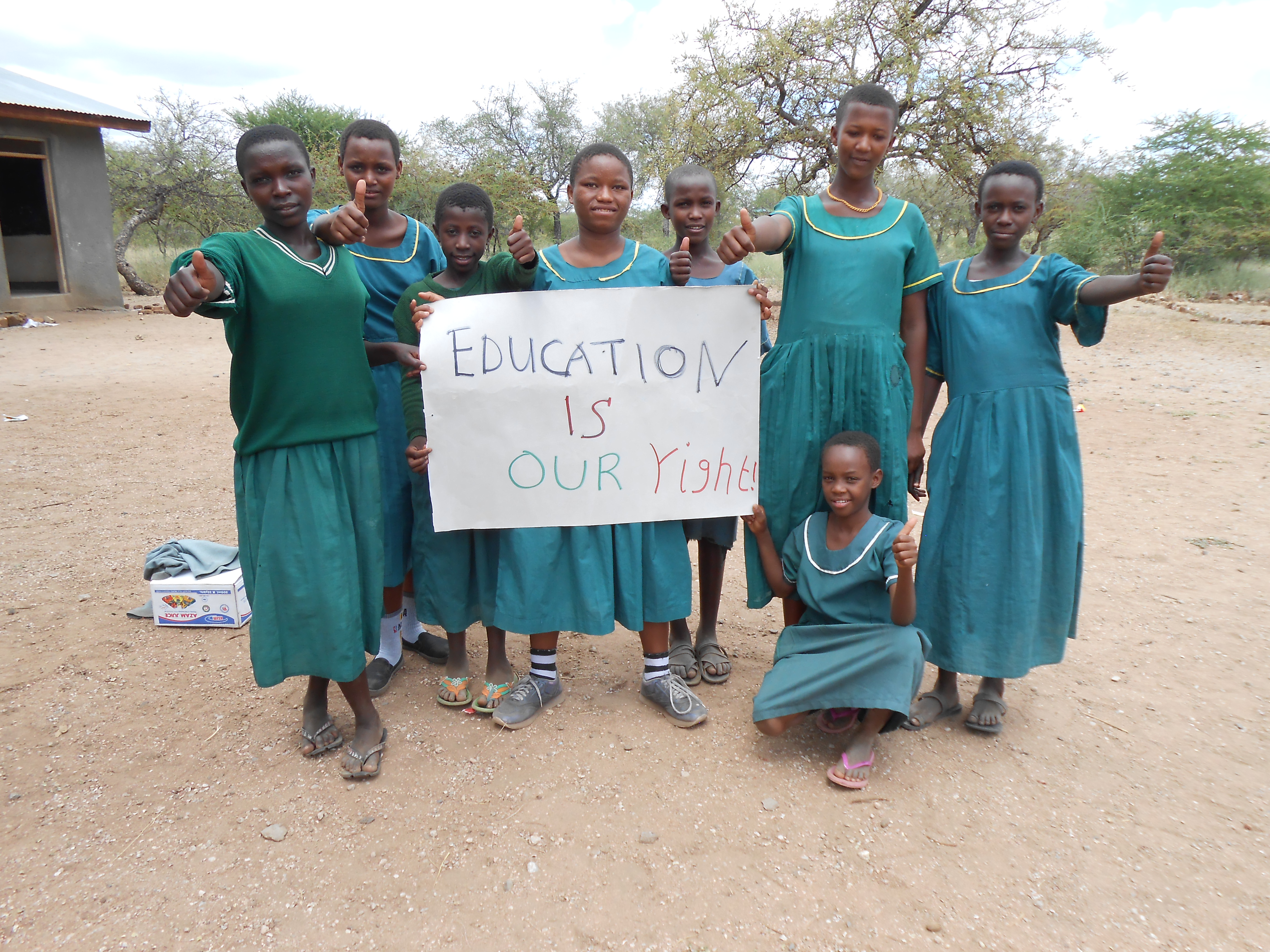 A group of students being trained by LEI Alumni.
A group of students being trained by LEI Alumni.
Why Turn Africa’s Most Vulnerable Youth into Leaders?
Each year, more than 100 teens in Kenya and Tanzania participate in the Leadership and Entrepreneurship Incubator (LEI) program, an initiative of the Asante African Foundation, which provides vulnerable youth from deeply rural areas of East Africa with the opportunity to work with their peers across borders to develop job readiness and leadership skills, helping them to become successful leaders, entrepreneurs, and global citizens. An important concept integrated throughout the program, paying it forward awakens the realization in youth that they have skills, talents, and knowledge that others may lack. It inspires them to take action in their own communities and share their gifts to create change for the better.
Since 2010, over 450 students have experienced this intensive training, focusing on job-readiness, entrepreneurism, and academic enrichment. Through the program we prepare these young leaders for future jobs, provide coaching on how to create their own business, and for those academically qualified, assist with securing university scholarships.
This past summer I shadowed graduates of the LEI program in their home villages, seeing firsthand the positive change they are creating in their communities. The young leaders’ parents, swelling with pride, were taken aback as these young community members transform their personal passions into community-wide projects, clubs, and small businesses. Not only parents, but other individuals connected with the LEI graduates approached me to express their enthusiasm for the young leaders. A teacher of Anderson, an LEI graduate who now teaches English debate skills, proudly boasts that she receives some credit for Anderson’s positive leadership.
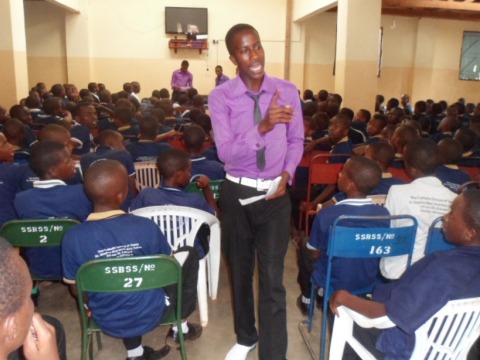 Leon, an LEI alumnus, gives back to his community.
Leon, an LEI alumnus, gives back to his community.
Each Leader Touches Many Lives
Our most conservative calculations indicate that LEI participants have touched the lives of at least 10 times the number of their community members.[1] LEI graduates fundamentally create a ripple effect as they become leaders beyond the borders of their homes, using knowledge and training they received from Asante Africa to benefit others. As students move through the changing roles contingent to the program, they develop drive and confidence, propelling them to apply their skills to find solutions to challenges in their home communities.
To illustrate more clearly how we’re making a difference, I want to give you a further peek inside to the lives of more amazing LEI alumni. They are challenged annually to work on independent or team projects of their own creation, projects that demonstrate the intense desire young people have to better their environment. The following profiles chronicle young adults who have transformed, over the course of their LEI involvement, into youth leaders, group organizers, and expressing their opinions and ideas.
What Our Young Leaders Have Launched
Anderson Hussein (Age 18, Kenya) illustrates how a personal passion can bring people together. “After attending the Leadership and Entrepreneurial Incubator, I felt inspired to turn the lessons I had learned into something useful. I turned to what I knew best – football. Where I just saw it as a hobby earlier, with planning and organization, I was able to create a formal club with 16 members. The club is popular because it serves a diversion from drugs and bad behavior for youth. Furthermore, it gives me the chance to act as an educator and role model, sharing what I learned with kids who need it.”
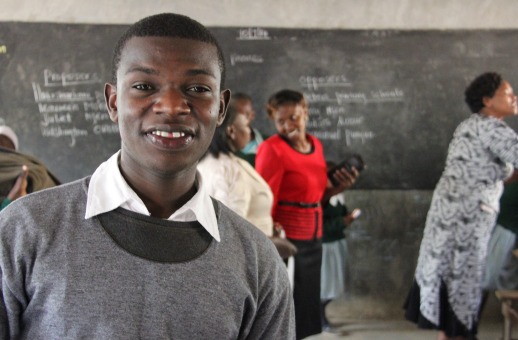 Anderson conducts Public Debate training for 6th graders to help them gain confidence in expressing their opinions and ideas.
Anderson conducts Public Debate training for 6th graders to help them gain confidence in expressing their opinions and ideas.
Leon Erasmi (Age 18, Tanzania) has been educated by one of the LEI graduates. Leon explains how delayed success has been an asset, forcing him to be more solution-focused. “I was first introduced to Asante Africa’s leadership and entrepreneurship club at my school. I remember the club chairperson, Kelvin Rodrick, speaking of the group’s pillars of commitment, transparency, acting as role models, and paying it forward. Inspired, I worked with Kelvin to advocate for the school club and became a regular participant, finding meaning in the positive, self-strengthening focus of the group. Through the group, I learned how to begin mapping my personal dream and strategizing as to how to achieve it. I wanted to publish a book so I collected ideas and stories until I was able to write a concise hard copy. Yet, I knew nobody to publish it nor did I have money for production. At an apparent roadblock, I drew upon my problem-solving skills and persistence by using a small amount of money to print sample books and seeking out a well-wisher who put me in touch with industry contacts. My hope is that someone who will read my sample will invest in printing the full copies. While my dream is still in progress, I spend my time paying it forward because I know that my efforts to hand over the skills that I was taught are central to the advancement of local communities.”
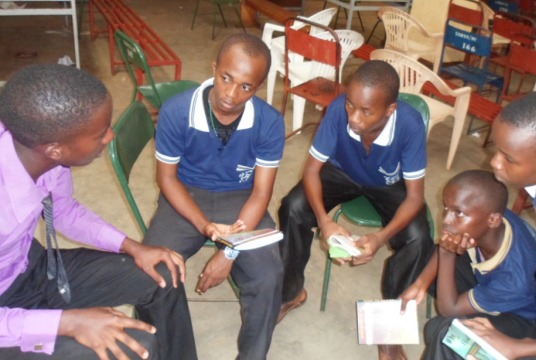 Leon meets with a group of students.
Leon meets with a group of students.
Emily (Age 19, Kenya), a 19 year old woman based in the rural community of Isiolo, believes educating, mentoring, and motivating younger people, especially those in deeply rural communities where infrastructure, family, and cultural mores may work against them, is a part of her personal mission. “I have been very blessed to have been given knowledge that has changed my course. Now it is my duty to share knowledge to help others make their course a reality.”
 Emily teaching a rural class about dream mapping and puberty.
Emily teaching a rural class about dream mapping and puberty.
Mirella Cherop (Age 18, Tanzania) tests her entrepreneurial skills: “After returning to my community after the LEI, I was very eager to use my newly learned skills. I decided to collaborate with the local church to spearhead an effort to grow vegetables in the church compound. The money we made after selling the harvest was put back into purchasing supplies for the next cycle. I have been learning valuable lessons each time and hence have been sharing my knowledge with friends who are trying similar projects within the community and rely on me as a mentor. I hope that we will earn enough with this project to support needy members of the church.”
Caroline Sunte (Age 19, Kenya), a young Maasai Woman, was inspired by LEI to capitalize on her entrepreneurial potential. “I have been successfully running a small-scale orange farm since I’ve returned from the LEI. Like most new entrepreneurs, I experienced trouble when I initially started my business. We had to buy seedlings and learn how to grow the fruit properly. However, with time and problem solving, I was able to do better and make a profitable business.
Carolyne says, “Still, I was unsatisfied. I searched for a way to make an impact on my community, not just my family. I was lucky to find people who thought like me, people who had also gone through the Leadership and Entrepreneurship Incubator. Together, we created the Angaza Foundation a group that provides entrepreneurial training, leadership, test-taking assistance, motivational lectures, health education, financial literacy, team building, and charity.”
Angaza Foundation (‘to enlighten’), works in Narok and Isiolo Counties in Kenya to spread knowledge where gaps exist. The foundation’s areas of focus range from self defense to reproductive health to dream mapping. Angaza Foundation is a prime example of a strong organization that derived from a local community need and led by young people with the confidence and skills to think strategically about how to best organize and meet those needs.
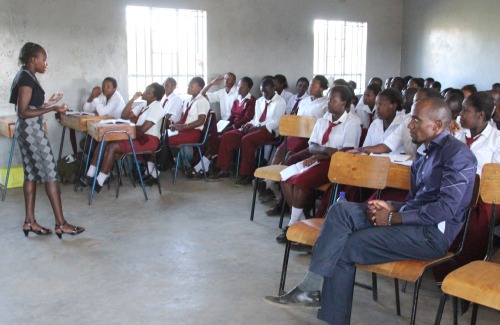 Carolyne speaking to a class about entrepreneurship.
Carolyne speaking to a class about entrepreneurship.
Lepilali Ngoilenya (Age 20, Tanzania), created a group called Champions of Leadership- CHALETA. Lepilali and a team of fellow alumni led an initiative to transfer what they’d learned at LEI to rural communities. So far, they have convinced the heads of six primary schools to allow them to train 50 students in each location. His team teaches exam preparation, hazards of FGM, resilence, and how learning is a journey, requiring many steps along the way. Lepilaili was just nominated as a member of All Africa Youth Ambassadors for his wisdom and advocacy.
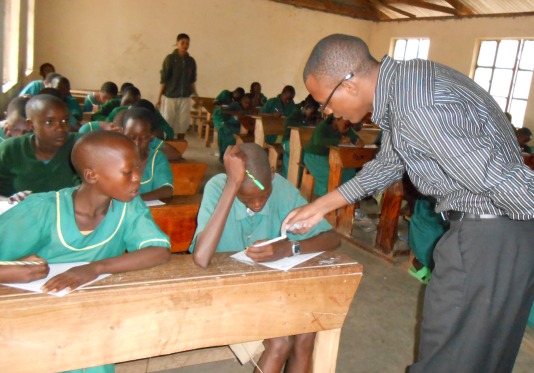 Lepilali trains students on issues ranging from resilience to exam prep.
Lepilali trains students on issues ranging from resilience to exam prep.
The Legacy Our Youth Will Leave
As we watch these youth grow into the much-needed agents of change, it is clear that paying it forward has become a significant part to our bigger strategy. Before our eyes, they are becoming the community leaders, village elders and the visionaries needed to create lasting positive change.
On behalf of these young leaders, and entrepreneurs, proud teachers, and parents, I can say with confidence that Asante Africa is having significant impact as demonstrated by the hundreds of youth who have found their voices, made their plans, and are now inspiring others to be part of a community solution. But this is just the beginning. I cannot wait to shadow these same young people five years from now when they are starting families, starting companies, running companies, and further impacting their communities and beyond.
All photography provided by Asante Africa.
LEARN more about Asante Africa Foundation here. To read more stories about Asante Africa’s LEI model, click here.
SHARE this story on Facebook and Twitter; see menu at top and bottom of page.
DONATE to Asante Africa’s mission by clicking here.
[1] Supporting data collected through impact interviews with teachers, community elders, and students.
SUBSCRIBE! Like what you see? Click here to subscribe to Seeds of Hope!
